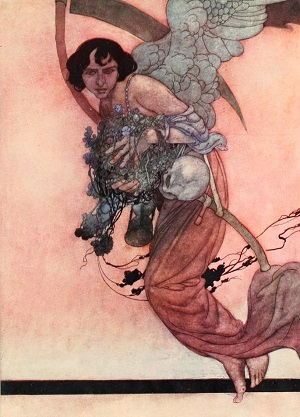| directory |
| home | contact |
|
|||||||||||||||
| search | |||||||||||||||
SONNET 123No! Time, thou shalt not boast that I do change:Thy pyramids built up with newer might To me are nothing novel, nothing strange; They are but dressings of a former sight. Our dates are brief, and therefore we admire What thou dost foist upon us that is old; And rather make them born to our desire, Than think that we before have heard them told. Thy registers and thee I both defy, Not wondering at the present nor the past, For thy records and what we see doth lie, Made more or less by thy continual haste. This I do vow and this shall ever be; I will be true, despite thy scythe and thee. NOTES CXXIII. In this Sonnet, which is probably to be connected with that next before, the poet reverts to the doctrine which had appeared previously, in lix., that there is nothing new, but that all things recur in unending succession. Things grand and stupendous which seem to be new are not really such. They are but re-presentations, dressings-up again, of what we have seen before, though the sight may have passed from our memory, and though there may be no historical record. The power of Time, thus limited to bringing back again what is old, the poet defies. 2. Thy pyramids. To be understood of anything grand and stupendous. Newer might. Power lately exercised. 5. Dates. Terms of existence. Admire. Wonder at. 7. And rather make them born to our desire. And prefer to regard them as really new, just "born." Q. "borne." 11. What we see do lie. By pretending to be new when not really so. 12. Made more or less by thy continual haste. Thus preventing an accurate register from being kept. 14. Scythe. Q. "syeth." How to cite this article:______ Even More... |

More to Explore _____
_____ |
©1999-2021 Shakespeare Online. All Rights Reserved.